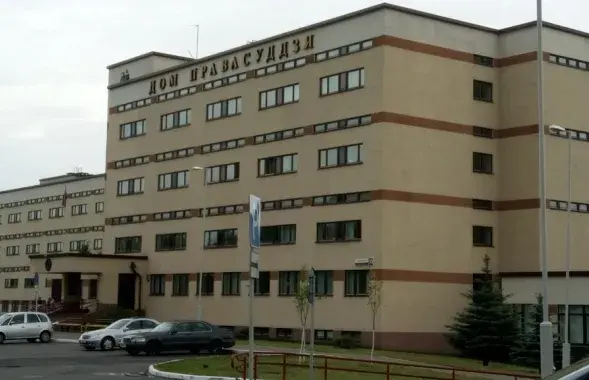CEC Secretary: EU leaves me on black list in order not to make a precedent
While one CEC member sues the EU, others expect the Union to cross them out of the 'black list' by itself.
Two persons who are on the EU's 'black list' - TV star Syarhei Mikhalchanka and CEC Secretary Vadzim Ipatau - appealed to the court of the European Union. They try to get rid of the sanctions this way. Vadzim Ipatau has told Euroradio why he thinks the decision of the Council of the EU regarding his personality was illegal.
"If we take our legislation and study it carefully, we see that a CEC member has practically no opportunities to fabricate the protocols provided to the CEC. They only analyze the elections results, while the elections actually happen at places. Precinct elections commissions count votes," the CEC Secretary says.
Ipatau insists that any decisions on whether the Belarusian elections were democratic or not should be based on the Belarusian legislation. He says there are no common international standards. Vadzim Ipatau estimates his chances to win in the court as high. He only complains that it would take a lot of time - a year has passed since the paper chase started and the date of hearings is still unknown. The official thinks that the reason for that is the unwillingness of the EU officials to make a dangerous precedent.
"I think that the delay of the hearings is politically motivated. In my opinion, there are certain grounds to satisfy my appeal. However, they don't want to create such a precedent so they spin out the time. They understand there will be questions regarding other CEC members, like, what are they doing in the black list then? If I manage to compel the justice it will be a huge step forward."
Besides, it's the European Union that will cover the court expenses in the cases of both Mikhalchanka and Ipatau. 8 and 6 thousand euros correspondingly have been allocated for that. Such practice is impossible in Belarus - bar associations can free a person from paying the expenses fully or partially in exceptional cases only.
Expert on the European policy with regard to Belarus Andrei Yeliseyeu disagrees with that. He says that the trials that last for 3-4 years is a normal occurrence for the high European courts. Yeliseyeu also feels skeptical about Ipatau's key argument that the CEC is not connected with falsification of the elections results. All the claims have been reflected in the reports of the foreign observers in details, and the lawyers of the Council of the EU will be happy to use them in their speeches. However, Ipatau and Mikhalchanka still have good chances to win the trial, the expert thinks. The point is, the principle of the supremacy of law was broken during compilation of the 'black list'. Belarusian officials, businessmen and force structures members had no chance to justify themselves.
"Those who were included in the black list were given no opportunity to claim their arguments before that. As far as I know, this fact is taken into account by the defense. The principle of supremacy of law was broken and the interests of all parties were not considered."
Thus, Mr. Ipatau is highly likely to visit any European country soon.
Euroradio has learnt that Ipatau's colleagues in the CEC approve his boldness and support his idea to sue the EU. It turned out this wasn't the first attempt of the Belarusian officials to get out of the 'black list'. The CEC Deputy Chairman Mikalai Lazavik says that a group of the CEC members (including today's Minister of Justice Aleh Slizheuski) addressed to the Council of Europe with a request right after introduction of the sanctions. They wanted to know for which crimes they had been banned from entering the EU countries. The reply impressed them so much that Mikalai Lazavik still keeps it for memory and even agreed to read out an extract:
"A citizen... (surname) is mentioned in the decision of the Council of Europe (number, date) under the reason that he is a CEC member... That's it. A member of the Central Elections commission, regardless whether he committed any crimes, offenses or not. This is like a stigma."
Mikalai Lazavik does not want to follow Ipatau's example and appeal to the court. He says that in case his colleague wins the trial, the EU should cross all the CEC members out of the list. Like, they should automatically lift the sanctions against those who were included in the list for identical 'crime'.



















